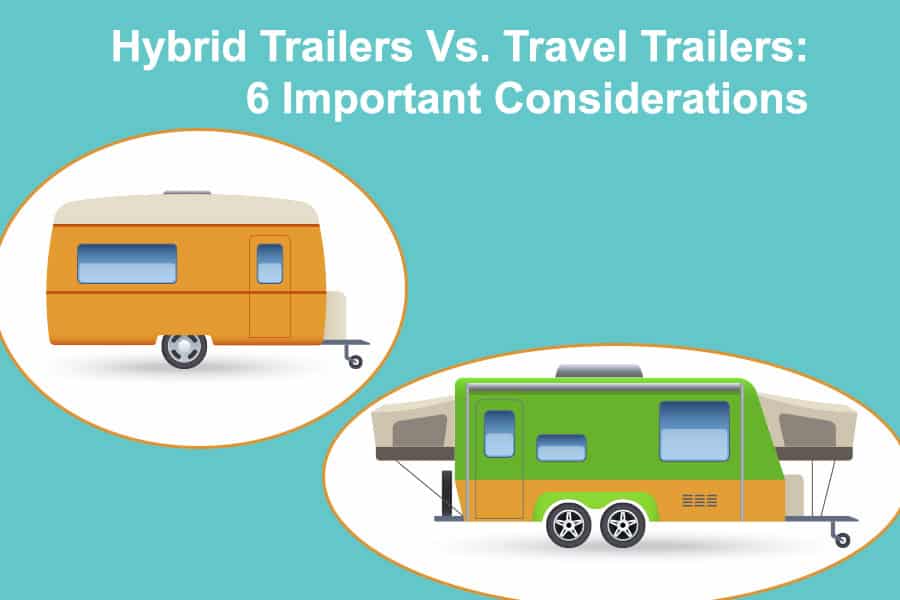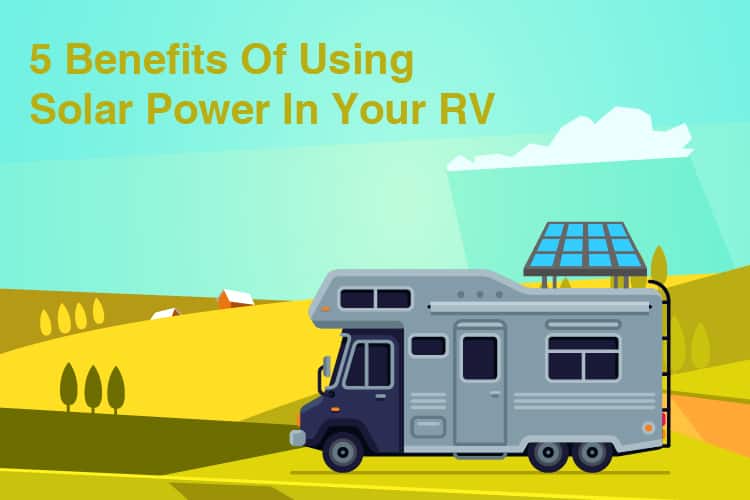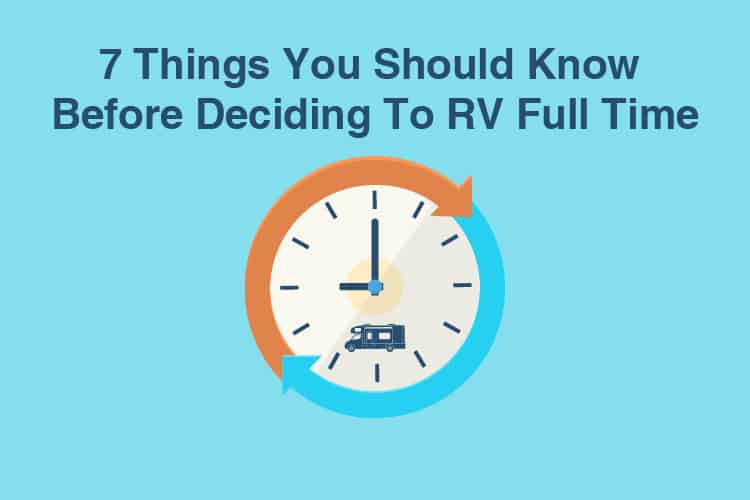If you’re torn between a hybrid trailer and a travel trailer, you’ve come to the right place. But if you’re expecting me to tell you which type is better, think again.
Neither trailer is better or worse than the other. Every trailer owner has a different set of needs and requirements. Your personal travel preferences will ultimately determine which is best—for you.
Your ideal camping experience might be someone else’s nightmare. That’s why you should know how the key features of travel and hybrid trailers differ.
You will learn what you can expect in terms of camping, maintenance, durability, and more. By the end of this article, you’ll know which of these trailers suits you best.
Hybrid Trailers Vs. Travel Trailers: What Are They?
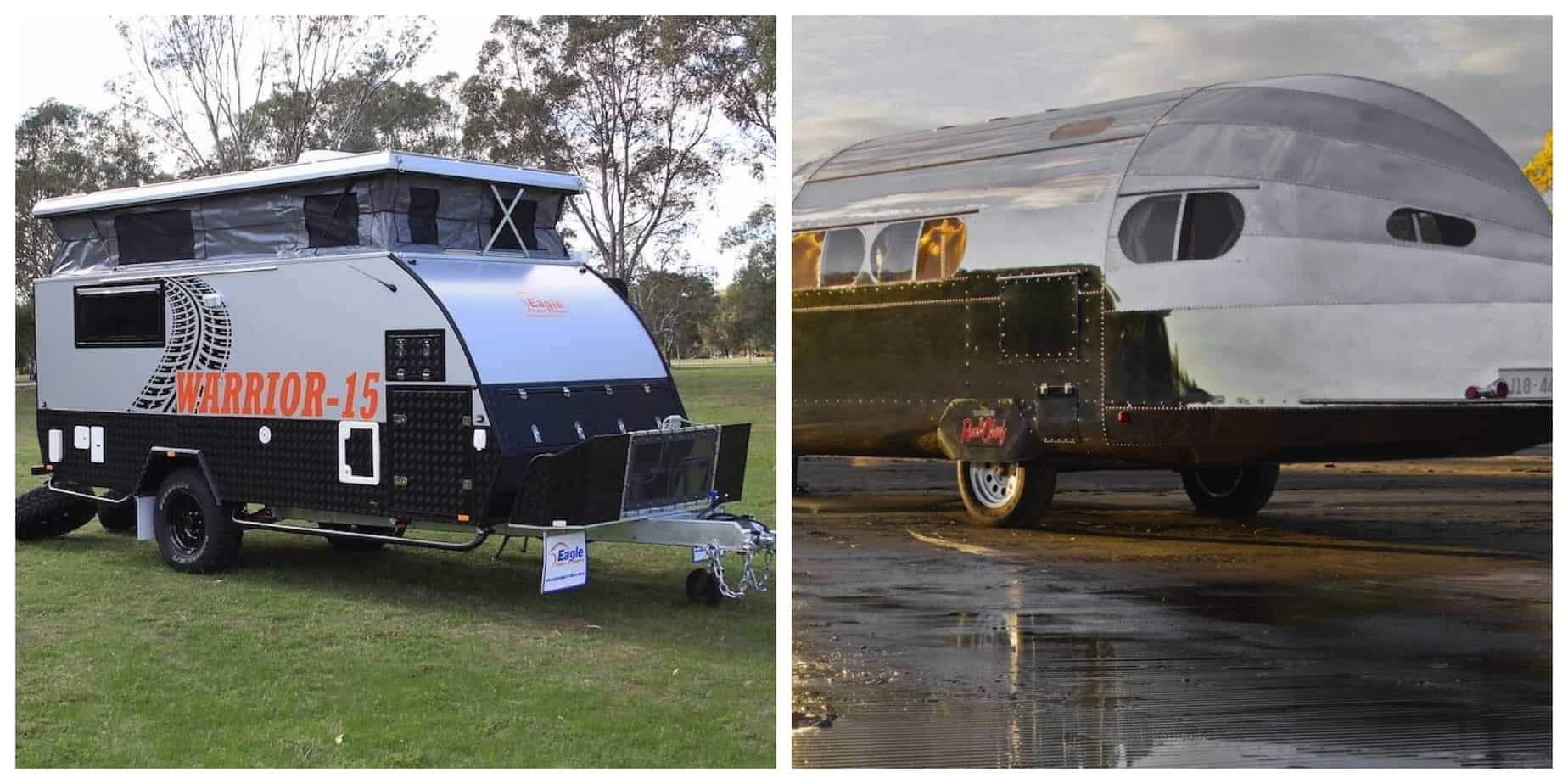
Let’s all get on the same page about what we’re talking about. We want to be sure we have our definitions clear before going into the details.
Hybrid Trailers
Hybrid trailers are a combination of pop-up campers and travel trailers. These hard-walled trailers include multiple canvas pop-out sections.
The canvas pop-outs can be minimal or elaborate, depending on the model of hybrid.
Travel Trailers
Travel trailers, on the other hand, are standard hard-walled trailers. They come in a range of sizes and weights.
This type of trailer can have pop-outs, which are usually built as integral parts of the trailer. The only canvas extension in a travel trailer will be the awning.
1. Noise And Weather Insulation
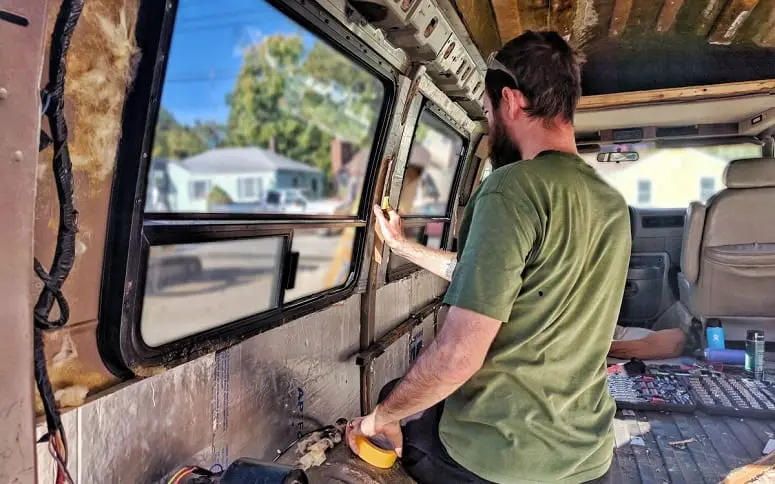
How important insulation is to you will depend on two things. When you plan to take your trailer out, and your personal preferences.
Naturally, travel trailers are better insulated because they are hard-walled. Consider the following insulation-related issues:
Noise
If you’re noise sensitive, a hybrid trailer might not be for you. The bulk of a hybrid trailer’s living space is generally made up of canvas extensions.
Canvas extensions won’t block out much (if anything at all) in the way of noise. Your generator, other campers at the campsite—you’ll hear them all loud and clear.
The opposite is also true. Fellow campers at your campsite will be able to hear noises coming from inside your hybrid trailer too.
Cold And Wet Weather
If you are a fan of winter camping, things can get tough in a hybrid trailer. Winterizing canvas extensions is difficult.
Still, where there’s a will there’s a way. It is possible to insulate pop-up extensions against the cold, at least to a certain degree.
Watch this video to learn how:
Nasty weather in general can hit a hybrid trailer hard. For example, if you like to camp at high altitudes, think of the wind. Canvas extensions are far more vulnerable to the elements.
Mattresses in the extensions can get damp after heavy downpours. If you’re caught in a hailstorm, canvas can get ripped.
2. Space And Weight
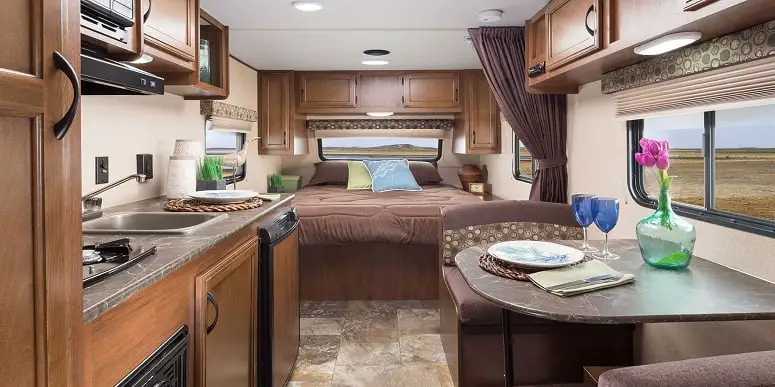
When it comes to travel trailers, more space typically equals more weight. Extra pop-ups are built into the trailer, and they are generally not lightweight.
Extensions on a hybrid weigh little in comparison. You can have a relatively compact hybrid trailer with canvas extensions that will double or triple the available space.
Travel trailers can have amazing floor plans, there’s no doubt about that. However, there will always be limitations to the separation of living spaces in a trailer.
The shape of travel trailers makes separate spaces difficult. Most of them are rectangular—long, and not more than eight feet wide. The canvas extensions in hybrid trailers, on the other hand, can give you the privacy you’re looking for.
In travel trailers, you will have to invest in additional extensions if you want separate sleeping areas. The extensions in hybrid trailers usually accommodate additional beds.
An added bonus of a hybrid is that you can have more than one queen-sized bed. Everyone can sleep in style.
Most standard travel trailer models include one queen-sized bed. Other travelers will be sleeping on the converted dinette, pull-out couches, or bunk beds.
3. Your Tow Vehicle
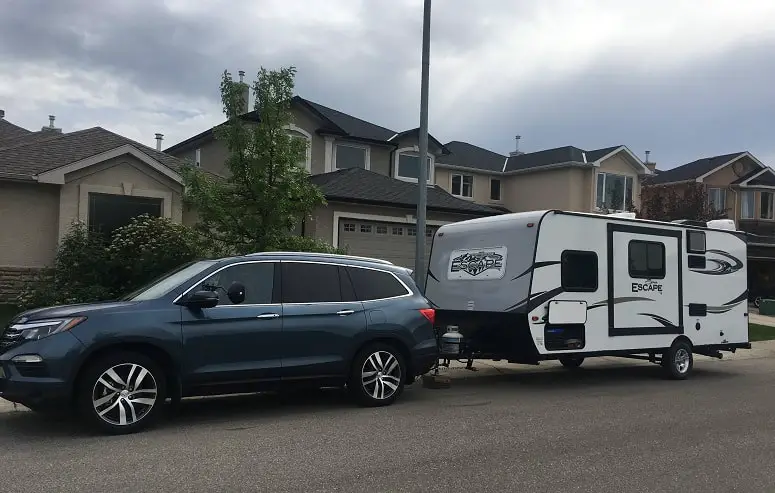
We’ve established that hybrid trailers tend to be lighter than travel trailers. Depending on your tow vehicle, too much weight can be a deal-breaker.
Travel trailers are versatile—they come in a range of sizes.
Unfortunately, if you have a small tow vehicle, you might find yourself limited in choice.
Watch this video to learn how to calculate your vehicle’s towing capacity:
You might not be in a position to buy a new car (or truck) for the trailer of your dreams. This doesn’t necessarily mean you will have to sacrifice space and sleeping capacity.
As I mentioned, most of the space in hybrid trailers comes from pop-outs. You can sleep more people without adding hundreds of additional pounds to the trailer’s overall weight.
If you’re looking to sleep a lot of people but your vehicle can’t tow a heavy weight, consider a hybrid.
It’s never a good idea to exceed your vehicle’s recommended tow limit. Your car should be capable of towing your trailer up a hill without struggling.
4. Camping Experience
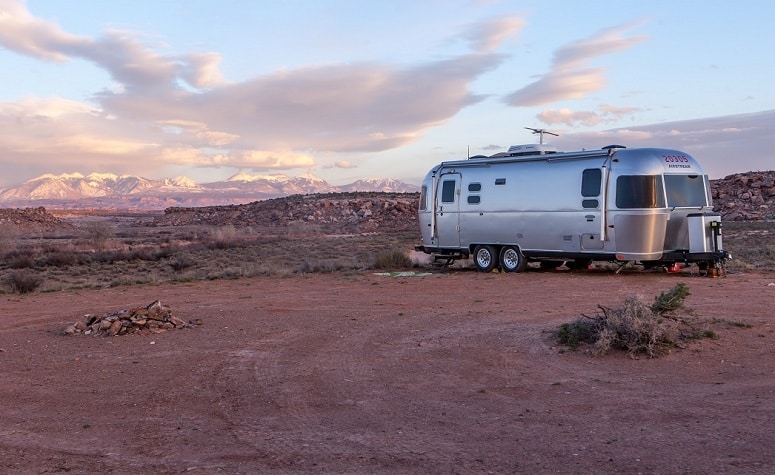
Ask yourself what kind of camping experience you are looking for. Do you want to feel like you’re at home on the road? Or would you prefer to be close to nature?
You can find models of both types of trailer that are built for boondocking. Travel trailers are great if you want more of a residential feel. You’ll be surrounded by hard walls, no matter where you are inside the trailer.
If you’re seeking a more immersive camp experience, hybrid trailers are perfect.
Sleeping underneath canvas is the next best thing to sleeping in a tent.
Wildlife
Take into account where you are planning to camp. Certain areas can have unfriendly wildlife—like bears or mountain lions.
If you’re heading to a national park to watch wildlife, be aware of safety precautions to take.
Take wildlife-watching precautions to avoid disease or injury.
Watch this video for tips to keep yourself safe while boondocking. Some of these tips apply more to traditional camping, but are still useful:
If you are worried about safety, you might prefer the comfort of solid walls. It’s easier for nefarious characters to slice through canvas than break into a hard-walled trailer.
Air Circulation
Travel trailers can get pretty hot in the summer. If you’re boondocking and aiming to conserve energy, running the air conditioning all the time might not be an option.
This is where hybrid trailers have an advantage. The canvas extensions allow air to circulate.
Some extensions can be unzipped, or have insect-proof mesh panels, so you can catch a nice evening breeze without being eaten up by mosquitoes.
5. Setting Up Camp
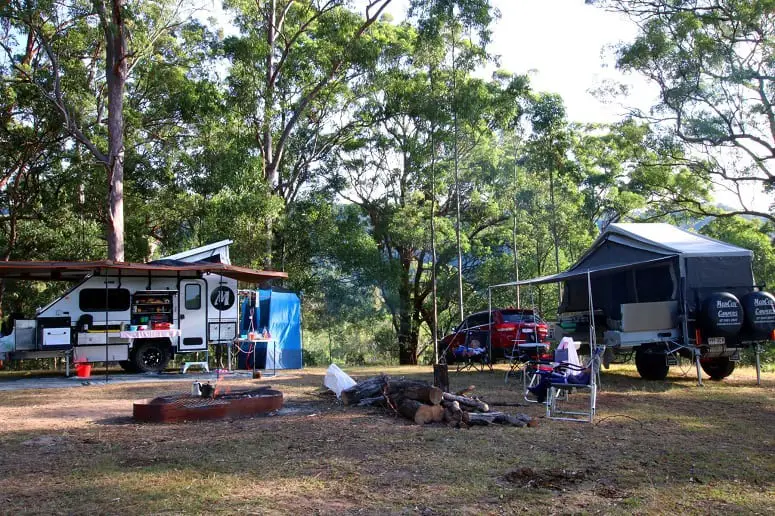
Setting up camp is not the daunting chore you might expect it to be with hybrid trailers. The newer models are built for convenience.
This means most hybrid trailers won’t take a lot of time and hard effort to set up. Nonetheless, it isn’t quite as straightforward as parking your travel trailer.
Think about it carefully. You’ll be setting up your canvas extensions rain or shine, night or day. Are you willing—or able—to delay moving to your next destination because it’s late and looks like rain?
Watch this quick time-lapse of setting up a hybrid trailer:
It’s also important to take care of the canvas extensions. Dirt will have to be cleaned off before you pack it away, as well as excess moisture (if possible).
If you’re traveling with young children, factor this in. At the end of a long day, packing away your trailer might be one burden too many.
Are you still not quite sure what to expect?
6. Durability And Maintenance
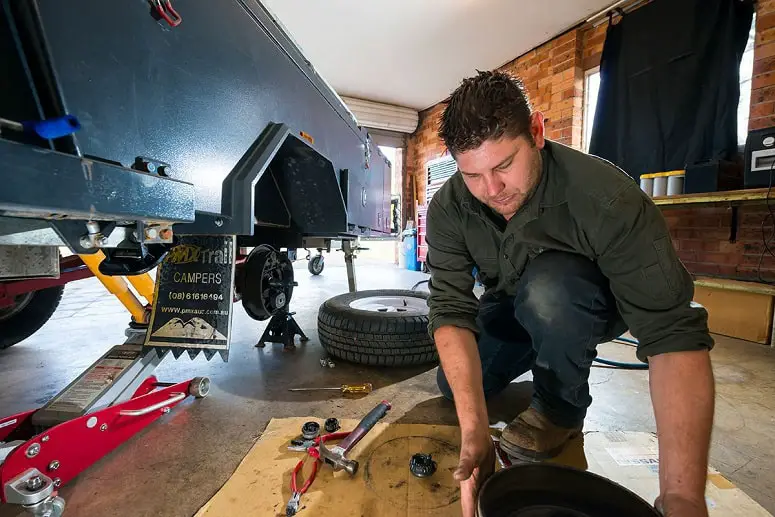
The durability of your future investment is something you need to think about. The same is true of maintenance.
Durability
Your hybrid trailer will have at least one canvas extension. You should be aware that canvas is not, and will never be, as durable as hard walls.
Admittedly, newer forms of canvas are mold, mildew, and tear-resistant. Despite all this, canvas is still going to wear out a lot faster than trailer walls.
Maintenance
Taking good care of your trailer, regardless of what type you have, extends its lifespan. Hybrid trailers have much the same maintenance needs as any other trailer, plus more.
As with all trailers, tires must be inflated, water tanks need to be sanitized regularly, etc. An added maintenance chore with a hybrid is the canvas extensions.
You will need to take the time to clean your canvas extensions prior to storage. These extensions should not be folded away wet if at all possible.
If you do need to pack away when the canvas is wet, or even damp, make sure to reassemble the trailer when you arrive home. Or face the consequences on your next trip.
If you’re not looking forward to the extra maintenance, a hybrid trailer may not be for you.
Conclusion
I hope that you are now closer to making a decision on the type of trailer that’s right for you. Whether you choose a hybrid trailer or a travel trailer, your satisfaction is the priority.
The ideal trailer should be an asset to your trips. This is why it’s important to pick one with features and capabilities that appeal to you personally.
Did you notice that there was no mention of the cost differences as one of the things to consider?
That’s because both types have entry-level to high-end models, with price tags to match. So whichever you prefer in the end, you’ll find one to suit your budget.
Is there anything you’d like to share with us about travel trailers or hybrid trailers? Please write it up in the comments. If this article helped you figure out which trailer is right for you, share it with others.


